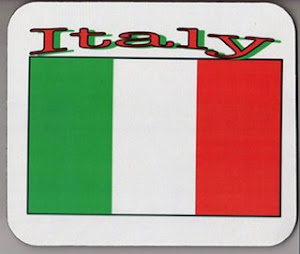By Mark Shenk
Dec. 4 (Bloomberg) -- Crude oil fell more than $1 a barrel in New York on speculation OPEC may increase production at its meeting tomorrow.
The Organization of Petroleum Exporting Countries, which supplies more than 40 percent of the world's oil, will meet in Abu Dhabi to decide on output for early 2008. An increase would help prevent accusations the group is doing nothing to ease high prices, said an OPEC official, who declined to be identified.
``OPEC will probably increase output, either officially or unofficially,'' said Brad Samples, commodity analyst for Summit Energy Inc. in Louisville, Kentucky. ``OPEC has every incentive to sell in this market.''
Crude oil for January delivery fell $1.29, or 1.4 percent, to $88.02 a barrel at 12:50 p.m. on the New York Mercantile Exchange. Futures reached $99.29 on Nov. 21, the highest since trading began in 1983. Prices are up 41 percent from a year ago``I think we could be headed down, back into the $70s,'' said Phil Flynn, a senior trader at Alaron Trading Corp. in Chicago. ``Because of the slowing economy here in the U.S., demand growth will not be as strong as it has been in past years.''
OPEC members including Iran, Venezuela, Qatar and Libya, have said today that sufficient global oil supplies preclude the need for a production increase.
``All options are open,'' Saudi Oil Minister Ali al-Naimi told reporters in Abu Dhabi today. Three days ago, he told reporters in Doha, Qatar, that crude inventories are ``very comfortable.''
U.S. crude-oil stockpiles fell 1 million barrels in the week ended Nov. 30, according to the median of responses by 13 analysts surveyed by Bloomberg News. The Energy Department is scheduled to release
Dec. 4 (Bloomberg) -- Crude oil fell more than $1 a barrel in New York on speculation OPEC may increase production at its meeting tomorrow.
The Organization of Petroleum Exporting Countries, which supplies more than 40 percent of the world's oil, will meet in Abu Dhabi to decide on output for early 2008. An increase would help prevent accusations the group is doing nothing to ease high prices, said an OPEC official, who declined to be identified.
``OPEC will probably increase output, either officially or unofficially,'' said Brad Samples, commodity analyst for Summit Energy Inc. in Louisville, Kentucky. ``OPEC has every incentive to sell in this market.''
Crude oil for January delivery fell $1.29, or 1.4 percent, to $88.02 a barrel at 12:50 p.m. on the New York Mercantile Exchange. Futures reached $99.29 on Nov. 21, the highest since trading began in 1983. Prices are up 41 percent from a year ago``I think we could be headed down, back into the $70s,'' said Phil Flynn, a senior trader at Alaron Trading Corp. in Chicago. ``Because of the slowing economy here in the U.S., demand growth will not be as strong as it has been in past years.''
OPEC members including Iran, Venezuela, Qatar and Libya, have said today that sufficient global oil supplies preclude the need for a production increase.
``All options are open,'' Saudi Oil Minister Ali al-Naimi told reporters in Abu Dhabi today. Three days ago, he told reporters in Doha, Qatar, that crude inventories are ``very comfortable.''
U.S. crude-oil stockpiles fell 1 million barrels in the week ended Nov. 30, according to the median of responses by 13 analysts surveyed by Bloomberg News. The Energy Department is scheduled to release











No comments:
Post a Comment